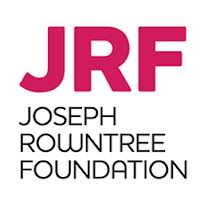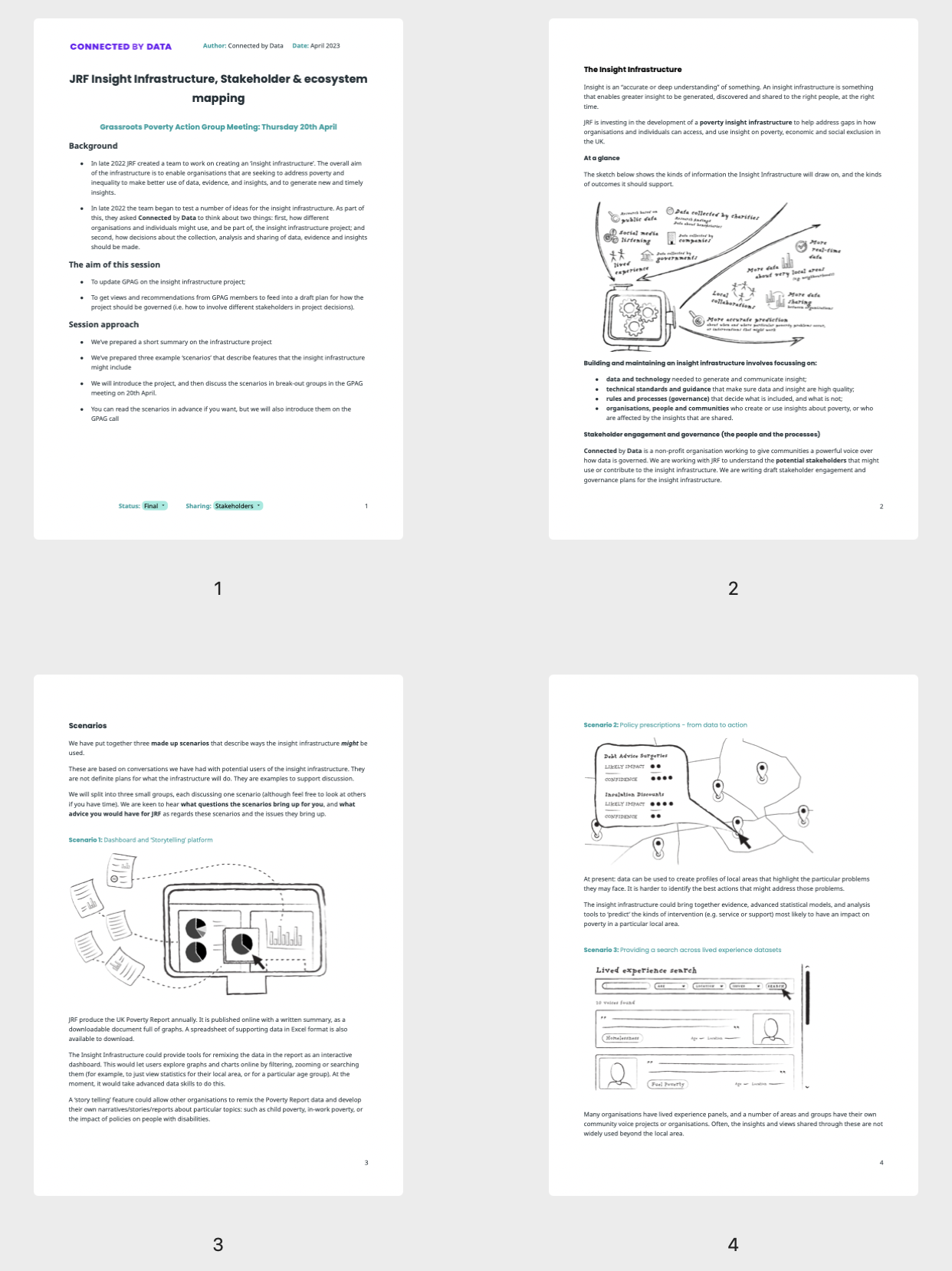

On Thursday 20th April, the Connected by Data team (Tim, Obioma and Alan) participated in a meeting of the Grassroots Poverty Action Group (GPAG). This group provides regular input for the Joseph Rowntree Foundation (JRF), helping to ensure that the Foundation’s work is informed by people with lived experience of poverty and inequality from across the UK. We met with the members of GPAG as part of the stakeholder and ecosystem mapping that we are doing with JRF to support the design of a poverty insight infrastructure.
The aim of the session was firstly to update the group on the insight infrastructure initiative, and secondly to get views and recommendations from GPAG members to feed into draft plans for stakeholder engagement and for the governance of the initiative.
To facilitate discussion, we prepared three example scenarios that describe features that the insight infrastructure initiative might include: a dashboard and storytelling platform; data-informed policy prescriptions for local areas; and, a search function to access lived experience datasets. You can find the briefing note shared with the group here.
We split into three small groups and, with each group focusing on one scenario, explored the questions and concerns that the scenarios brought up, and the advice that GPAG members would have for JRF as plans move forward for the insight infrastructure.
Each group had rich discussions, exploring both the appealing aspects of the example scenarios, but also the questions and concerns that GPAG members had, and the advice that they would want to give JRF. While the three groups focused on one scenario each, there was a lot of commonality in the guidance that emerged.
GPAG members highlighted the importance of involving people with lived experience of poverty and inequality, and doing so in ways that ensure that their input is used effectively as part of an overall plan. They also emphasised that the involvement of people with lived experience should not be restricted to sharing stories of hardship. Instead, they should be able to bring their perspectives to bear as regards defining priority problems, conducting analysis, considering possible interventions, and assessing the effectiveness of specific interventions. More limited engagement would be a missed opportunity for the insight infrastructure initiative. In line with the theme we heard from the first Discovery workshop about the importance of questions, GPAG members emphasised the importance of enabling communities to define the questions that an insight infrastructure might address, particularly at the local area level.
A second area of advice related to the sorts of data that might be included in a poverty insight infrastructure, and how that data might be used. GPAG members were keen to ensure that an insight infrastructure combined quantitative data and analysis with qualitative and contextually rich data and analysis. This, they argued, would help to cast light on the why and the how of poverty and efforts to address it, and do so in ways that make space for the perspectives of people with lived experience. GPAG members also emphasised that data, analysis and policy prescriptions that might be provided through a poverty insight infrastructure need to be tailored and responsive to local needs and priorities, and mindful of the political landscape and feasibility in different places.
These messages will feed into the next iteration of the ecosystem mapping and engagement outputs (draft engagement and governance strategies) to be shared with JRF in a few weeks time. These strategies explicitly address the importance of lived experience representation in both the formal and informal governance and engagement processes of the initiative.
Our time with GPAG closed with project lead, Rosario, reflecting on how critical the views shared were to the commitment of the initiative to ‘keep this human’ and to focus on shifting power dynamics through the work.
We express our sincere thanks to GPAG members for taking the time to meet with us, and giving space for these discussions in their agenda.
